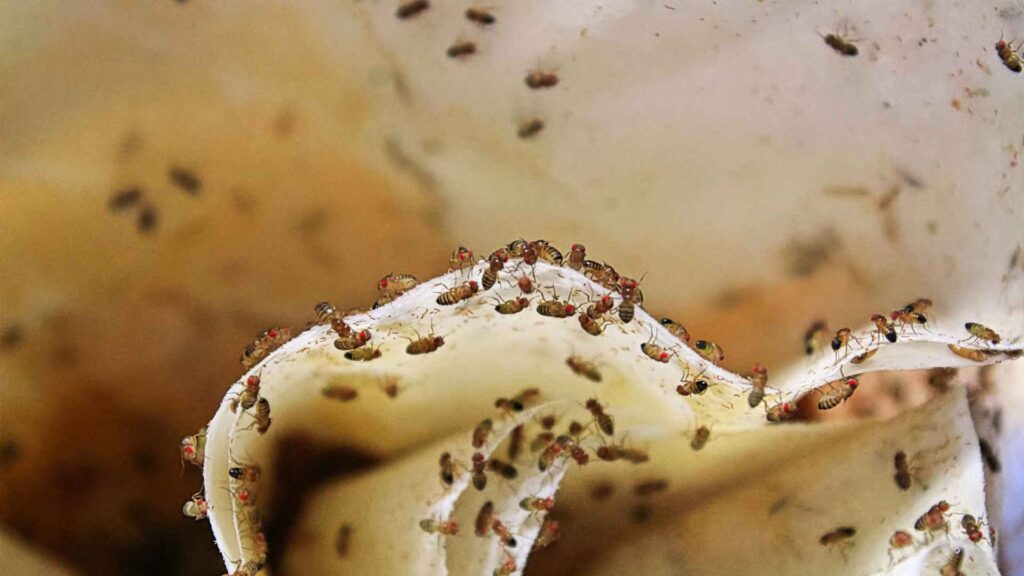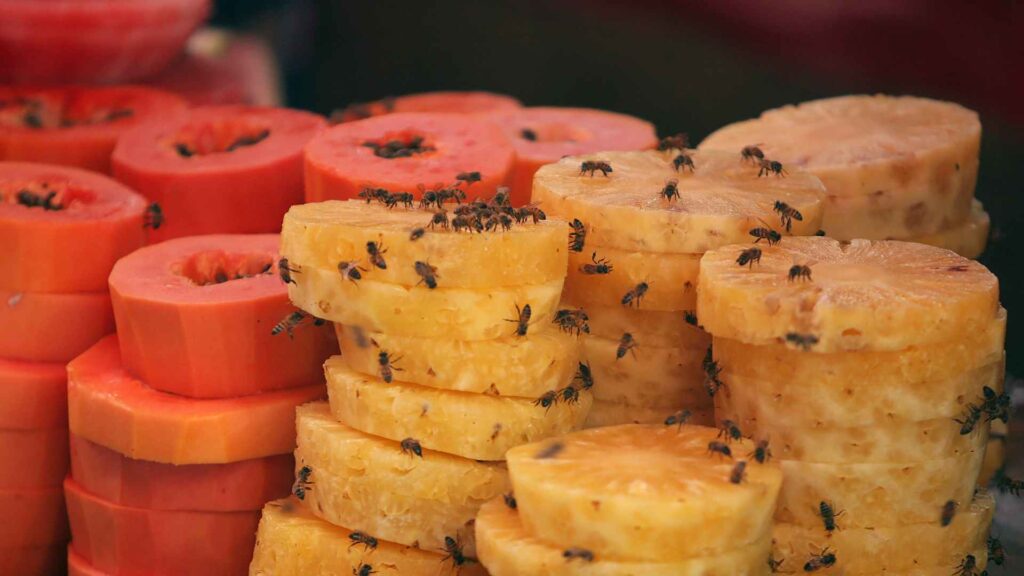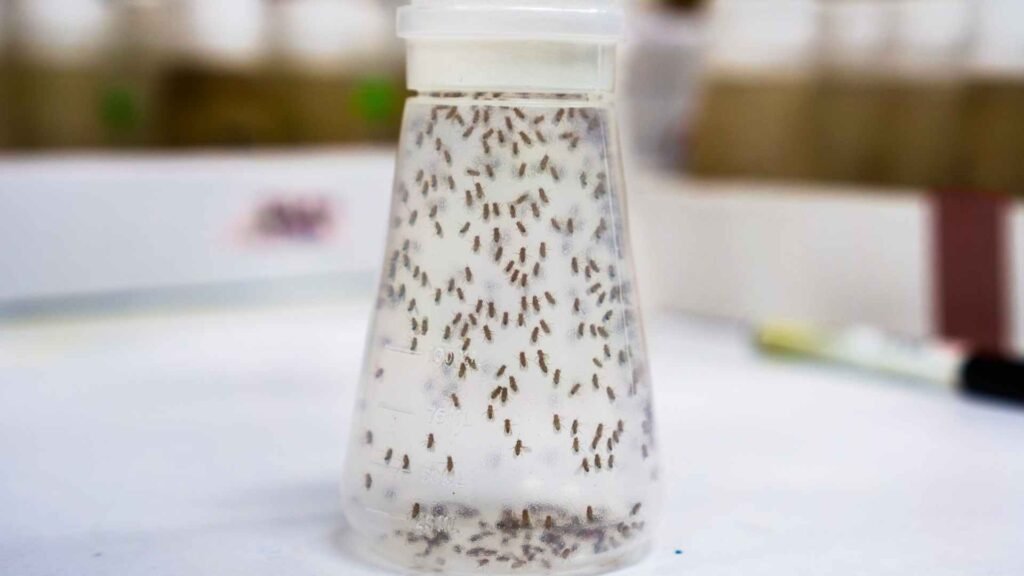Table Of Content
ToggleAs a pest control expert, I frequently encounter the question of how to get rid of fruit flies from house plants.
These tiny, buzzing nuisances can quickly turn the peaceful haven of your indoor garden into a frustrating battleground. But fear not, plant parent!
This guide equips you with the knowledge and tools to eliminate these unwanted guests and keep your precious greenery thriving.
Fruit flies are attracted to the moist environment and decaying organic matter found in houseplant soil. They lay eggs in this damp soil, and the larvae hatch, feeding on the plant’s roots and causing stunted growth or wilting.
These gnat-like flies are typically reddish-brown and about the size of a sesame seed.
Look for them hovering around your plants, especially near the soil. Here are some additional signs of a fruit fly infestation:
Overwatering is a major culprit for creating the perfect environment for fruit flies. However, there are other factors that can contribute to an infestation:
Explore safe pest control for homes with infants.

The best defense is a good offense! Here are some proactive steps to keep fruit flies at bay:

Fight back against those pesky fruit flies with these eco-friendly solutions that won’t harm your precious houseplants:
Schedule a quick consultation for targeted fly control.
Contact us for a customized fly-free pest plan.
In rare cases of a severe fruit fly infestation, you might consider using chemical insecticides as a last resort. If you can’t handle the infestation or DIY methods are not effective call a licensed pest control professional. Always prioritize safety! Here are some key points to remember:
Remember: Consistent monitoring, early intervention, and a combination of these natural and preventative methods are key to a successful fruit fly-free future for your beloved houseplants!

As a pest control expert, I’ve seen the joy houseplants bring to people’s lives.
Don’t let fruit flies steal that joy! By implementing preventive measures, natural remedies, and strategic interventions, you can create a thriving indoor garden free from pesky fruit flies.
Remember, consistent monitoring, healthy plant care, and a combination of control methods are key to a successful fruit fly-free future for your beloved houseplants.
If the infestation seems overwhelming, seeking professional help from a pest control specialist is always an option.
To get rid of gnats in your potted plants, start by addressing the root cause, which is often overwatering leading to moist soil—a perfect breeding ground for gnats. Adjust your watering schedule to allow the top inch of soil to dry out between waterings. You can also improve drainage by using well-draining soil and pots with drainage holes. Consider placing sticky traps near the affected plants to catch adult gnats and reduce their population.
Getting rid of little flies around your plants involves similar steps to dealing with gnats. Ensure that you’re not overwatering your plants and that the soil has good drainage. Clean up any decaying plant material or spills that may attract flies. Using sticky traps or vinegar traps can help catch adult flies, reducing their numbers. Consider placing herbs like basil or mint near your plants, as their scent can repel flies.
Indoor plants can attract fruit flies due to several factors. Overwatering creates a moist environment that fruit flies love, especially if there’s decaying organic matter in the soil. Bringing in infested potting mix or having ripe fruits nearby can also introduce fruit flies to your indoor plants. Insufficient airflow and poor sanitation practices can further contribute to fruit fly infestations.
For fruit flies, it’s best to use natural remedies rather than chemical sprays, especially if your plants are indoors. You can make a solution of water and dish soap to spray on your plants. The soap disrupts the flies’ ability to stay on the plant’s surface. Additionally, consider using essential oils like citrus or eucalyptus diluted in water as a spray, as these scents deter fruit flies while being safe for plants. Avoid using chemical insecticides unless absolutely necessary and always follow product instructions carefully.
References
https:// entomology.ca.uky.edu/ef621
https:// extension.umn.edu/beneficial-insects/parasitoid-wasps
Your trusted pest control experts in Southern California. Keeping your neighborhood pest-free!